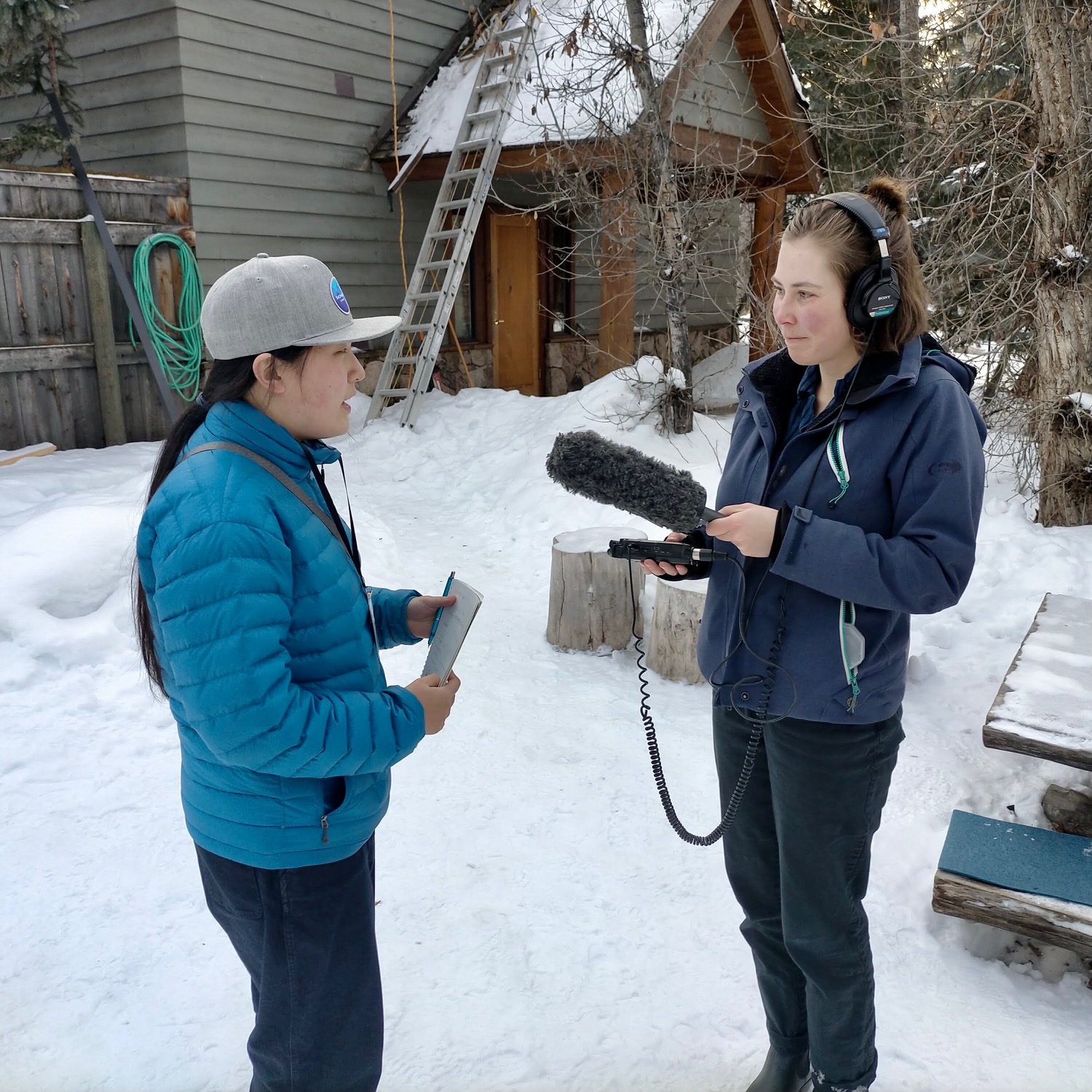On a brisk, sunny January afternoon at the Aspen Center for Environmental Studies, the clicks of cameras snapping away blended with the sounds of a nature preserve as about a dozen visitors from Shimukappu, Japan documented the flora and fauna of Hallam Lake.
The group of nine teenagers and several adult chaperones were in town as participants in a cherished three-decade-old tradition of international exchange between Aspen and its sister city Shimukappu, now back in full force after two years of pandemic restrictions and virtual programming.
The connection between Aspen and Shimukappu is one of seven different partnerships that Aspen Sister Cities maintains with communities around the world to promote cultural exchange and a vision of world peace.
The Shimukappu students and their chaperones admitted the students were a little nervous when they first arrived in Aspen for their 10-day visit, but by the second-to-last day of their trip on Jan. 12, some students like 14-year-old Towa Shimokawa might have even seemed a little eager to answer a few questions from the reporter tagging along on the visit to ACES.
Shimokawa observed that Americans are “very frank,” and said interactions have been “funny, but a little difficult.”
The trip has also helped him see that “the world is very big,” he said.
It’s also friendly, 15-year-old Konohana Fujimoto observed.
“Here, people [are] very kind, everyone is very kind,” Fujimoto said.
Fujimoto said these exchanges have value as a window into a different way of life and a connection between two places. Some people may be visiting the United States for the first time on this exchange, Fujimoto said.
“They’re touching [a] very different culture,” Fujimoto said.
Through the Aspen Sister Cities organization, Aspen also dispatches an English teacher from the Roaring Fork Valley to work in Shimukappu long-term; Timbah Bell, who previously taught at Aspen High School, is currently in that role. Other exchanges occur with Aspen’s six other sister cities, all of which are also outdoorsy mountain communities.
For Bell, the return to his old stomping grounds prompted reflection on both similarities and differences between Aspen and Shimukappu.
“There are just as many things in common or points of overlap as there are differences and all of those dimensions are beautiful, and create this … mesmerizing kaleidoscope that is so beautiful and so good to get to know,” Bell said.
Like Shimokawa, Bell said he’s noticed the “frankness” of American culture, and also the humble approach his Japanese students take when given the opportunity to show their English skills.
“That deference and that gentleness in demonstrating their language skills is so different than what I’ve seen with my highly skilled students in the United States,” he said.
As for the similarities?
“Loving to grill meat joyfully,” Bell said with a laugh.
Barbecuing, it seems, has plenty of enthusiasts in Shimukappu, too.
Kaya Williams is the Edlis Neeson Arts and Culture Reporter at Aspen Public Radio, covering the vibrant creative and cultural scene in Aspen and the Roaring Fork Valley. She studied journalism and history at Boston University, where she also worked for WBUR, WGBH, The Boston Globe and her beloved college newspaper, The Daily Free Press. Williams joins the team after a stint at The Aspen Times, where she reported on Snowmass Village, education, mental health, food, the ski industry, arts and culture and other general assignment stories.







Comments are closed.